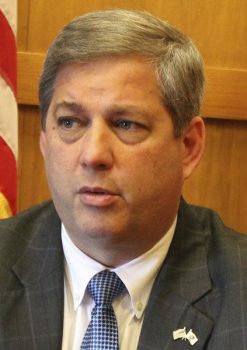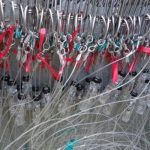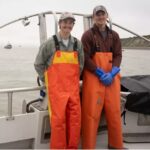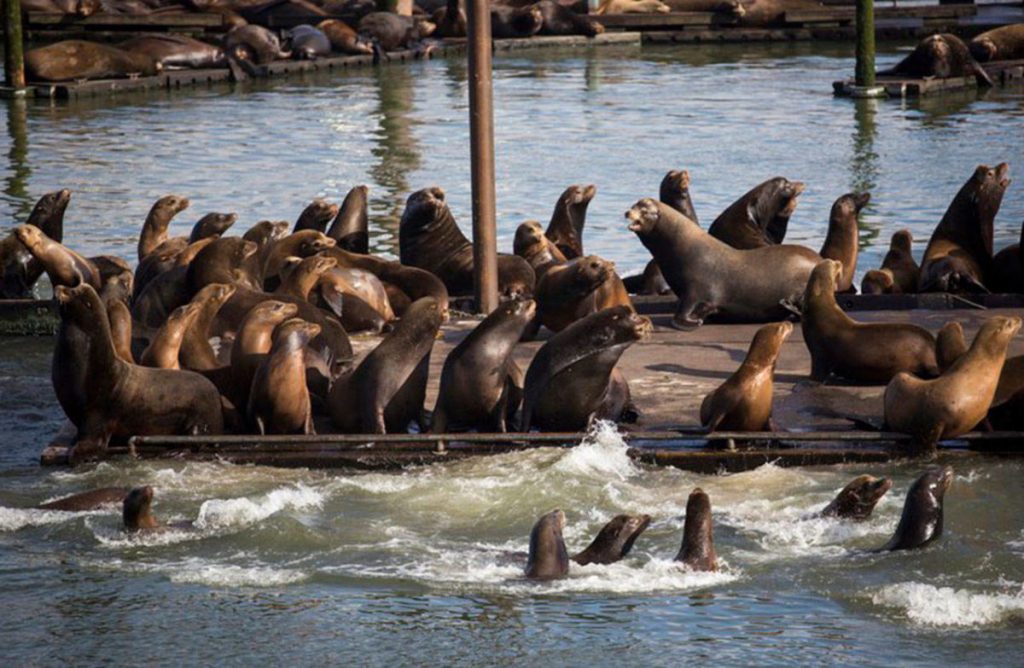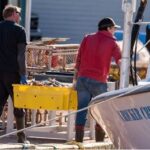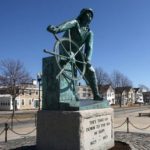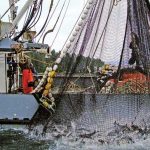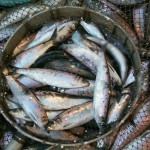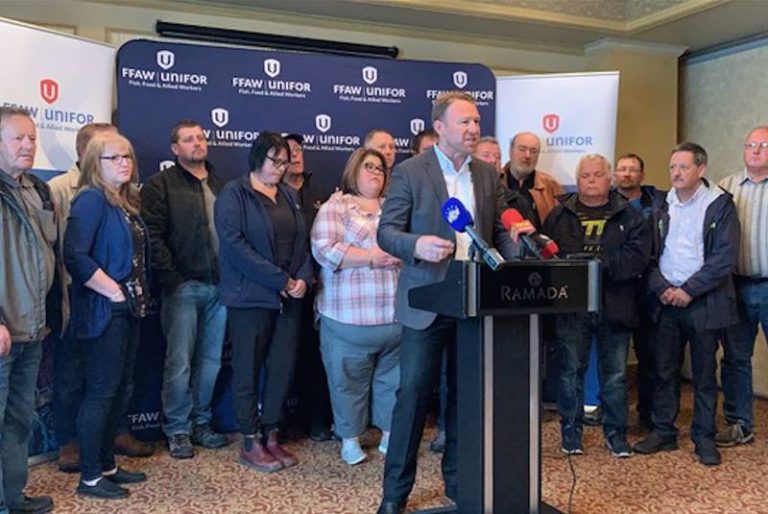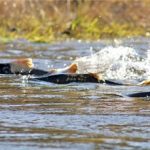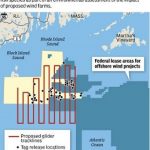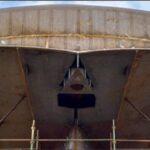Tag Archives: Atlantic cod
What You Need to Know About Cod
As a large, naturally abundant fish, cod has been eaten by various human populations for centuries. 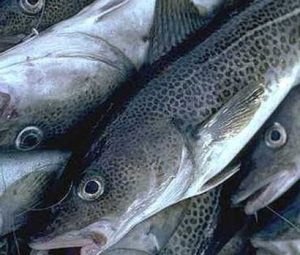 While both of America’s Atlantic cod fisheries are overfished, American stocks of Pacific cod (Gadus macrocephalus) are not. What’s more, various other cod fisheries are located around the globe, some over-exploited, others not. The fish’s prevalence, along with its suitability for eating, means that despite dwindling numbers, cod remains a stalwart of many cuisines. However, there are many things about cod that aren’t widely known. It might surprise some people to learn that cod hunt for prey. They eat a variety of animals, ranging from worms to lobsters and even small fish. Such a diet means cod are capable of growing up to an impressive length of six feet and a weight of over 100 pounds. more, >>click to read<< 11:52
While both of America’s Atlantic cod fisheries are overfished, American stocks of Pacific cod (Gadus macrocephalus) are not. What’s more, various other cod fisheries are located around the globe, some over-exploited, others not. The fish’s prevalence, along with its suitability for eating, means that despite dwindling numbers, cod remains a stalwart of many cuisines. However, there are many things about cod that aren’t widely known. It might surprise some people to learn that cod hunt for prey. They eat a variety of animals, ranging from worms to lobsters and even small fish. Such a diet means cod are capable of growing up to an impressive length of six feet and a weight of over 100 pounds. more, >>click to read<< 11:52
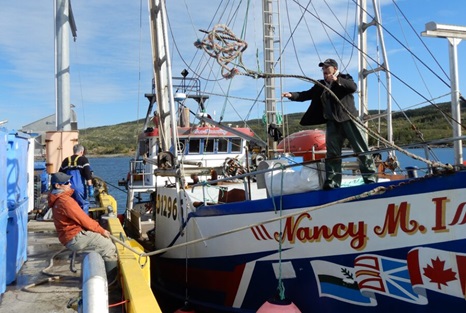
Northern cod numbers may have moved out of critical zone, says federal scientist
Captain Alex Saunders has more experience fishing northern cod than most fishermen. At 81 years old, the fishing captain has fished for cod off the Labrador coast for six decades. This year, he says, was a banner year for that fishery. “There were no codfish in northern Labrador for about 60 years, but this summer the cod were all along the Labrador coast from Blanc Sablan in the south to north of Nain,” Mr. Saunders says. A good catch rate this season meant Mr. Saunders’s crew hauled in 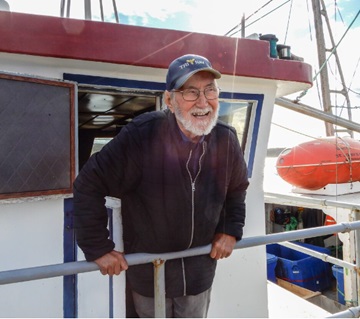 gillnets every day for weeks, returning to communities such as Pinsent’s Arm, a fishing town of about 50 people along the Labrador coast, to land cod at the wharf. But the season’s quick success also meant its early closing. “On a Friday afternoon they said, ‘Get your gear out of the water Sunday by six o’clock,’” Mr. Saunders says of the Department of Fisheries and Oceans’ (DFO) decision to shut down the fall northern cod stewardship fishery weeks earlier than planned – a measure to ensure fishing did not exceed season limits. Photos, >>click to read<< 08:33
gillnets every day for weeks, returning to communities such as Pinsent’s Arm, a fishing town of about 50 people along the Labrador coast, to land cod at the wharf. But the season’s quick success also meant its early closing. “On a Friday afternoon they said, ‘Get your gear out of the water Sunday by six o’clock,’” Mr. Saunders says of the Department of Fisheries and Oceans’ (DFO) decision to shut down the fall northern cod stewardship fishery weeks earlier than planned – a measure to ensure fishing did not exceed season limits. Photos, >>click to read<< 08:33
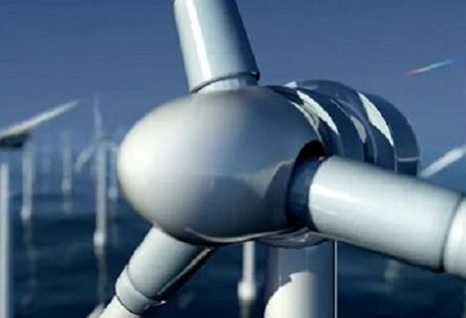
Wind project scope ‘staggering’
It wasn’t “until the whales and the dolphins started washing up that people’s attention was able to focus” on the offshore wind farms, according to Cindy Zipf, and when people looked beyond the whales, they realized what is happening is “staggering.” “I don’t think ever in the history of mankind have we proposed to industrialize an ecosystem this fast and at this magnitude,” she said. Zipf is executive director of Clean Ocean Action, a coalition of groups dedicated to protecting the ocean. Zipf acknowledges the pace at which the plans are moving forward is making efforts to slow or stop them difficult. “It’s challenging considering how fast-tracked everything is and how limited the permitting process is. It’s kind of under the jurisdiction of two people to make it happen, President Biden and Gov. Murphy,” she said. “Hopefully as more is understood there will be some more caution but as it is right now the (state and federal) agencies are very enthusiastic.” >click to read< 16:29
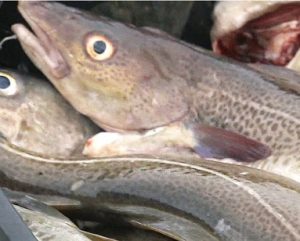
Fishing plan can rebuild long lost cod stock by 2033
Most of the cod now sold in the U.S. comes from overseas because many American fishermen avoid the fish-and-chips staple altogether. But the regulatory New England Fishery Management Council has approved a new strategy that it said has a 70% chance of rebuilding the stock by 2033. The proposal, which is awaiting final approval from NOAA, would use 10 years of low catch limits to try to rebuild the cod population in the Gulf of Maine. But some fishermen are unconvinced cod are ever coming back. Fishermen have grown used to choking quotas on cod catch and have moved on to other species, said Terry Alexander, a longtime fisherman from Harpswell, Maine, who targets haddock and monkfish these days. “I would like to have my codfish back, for sure. We could make some money on them. But that’s never going to happen,” >click to read< 16:02
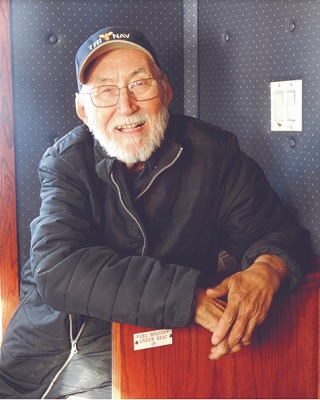
The cod delusion – A moratorium on cod fishing that was supposed to last two years has now lasted 30.
Three decades on, the latest DFO science still puts Atlantic cod in the critical zone. “I hope politicians and bureaucrats in Ottawa have learned something, because I’ve learned something: the moratorium was the biggest catastrophe ever heaped on the people in this province, ever. Nothing has been as bad as this,” says Captain Saunders, an 80-year-old Inuk. Seated in the wheelhouse of his longliner, docked in Pinsent’s Arm in late September 2021, Saunders speaks with the authority of someone with six decades of fishing experience, backed by centuries of hindsight. “Newfoundland and Labrador people fished for 500 years and didn’t damage the stocks. What Canada done was an atrocity in my opinion. It ruined a way of life. It ruined culture. All the stages, stage heads, they’re all falling apart, they’re all deteriorated — that’s the government did that.” >click to read< 17:40
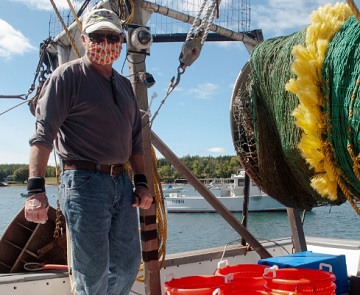
How many fish are in the sea? New rules intend to help with the count.
Regulators and fishermen hope new rules set to take effect this summer will provide a more accurate understanding of the population of some of New England’s most iconic fish, including Atlantic cod, which has seen a spectacular collapse in recent decades. The rules, adopted this spring by federal regulators, will require boats in groundfish sectors to have a human observer or a camera aboard on every groundfish trip to keep tabs on what they catch and discard. >click to read< 09:37
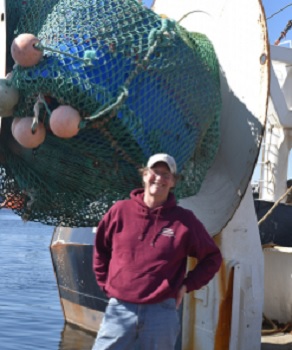
New England’s founding fish, may be returning to local waters
Atlantic cod, once a mainstay of the region’s economy, is being fished at historically low levels, but a research scientist whose past findings opened up a tightly regulated scallop fishery says cod may be staging a comeback. Before he heads out to sea, commercial fisherman Raymond Lees stops by Reidar’s Trawl Gear & Marine Supply in New Bedford to buy custom-designed fishing nets. The shape of the net, the width of its mouth and the size of its holes all help him target certain species of fish and, perhaps more importantly, avoid others. “I’ve spent so long running away from codfish that I’ve gotten better at running away from codfish,” Lees said during a recent run to Reidar’s. “I have specialized gear and I’m good at what I do.” “We went from a huge fishing business, as far as the groundfishing fleet’s concerned, of 300 boats down to 20 boats,” Bendiksen said. “It’s pretty much a 90 percent loss of what the fleet was.” >click to read< 08:10
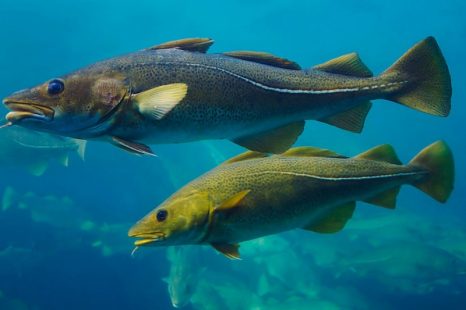
Fishermen not feeling the effects of ‘marked decrease’ in Atlantic cod population
What started as a research presentation on rising ocean temperatures and decreasing cod supply by NOAA quickly turned into a revealing conversation about how scientists and their data often do not reflect fishermen’s experiences. Findings by a working group of researchers indicated that the lifecycle of the species is being influenced by the environment, specifically rising ocean temperatures, which have changed the fish’s spawning behavior and their predator-prey relationships. Fishermen did question is whether these facts are having the same implications that the researchers believe. Al Cottone, a Gloucester fisherman, says he feels cod are in different areas, and that he has noticed a change in the tides, too. >click to read< 10:56
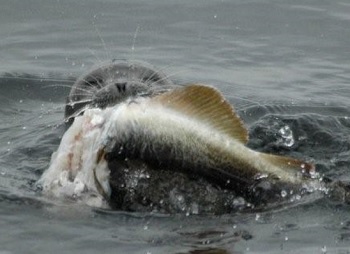
‘It’s more than just a fish:’ Scientists worry cod will never come back in N.L.
“Next year will be 30 years since the original moratorium on this stock,” said Robert Rangeley a marine biologist and director of science with Oceana Canada, a non-profit group aimed at protecting the country’s oceans. “It’s time to do something different.” Atlantic cod in the waters off Newfoundland’s northeast coast have been in the critical zone since the early 1990s, shortly before the federal government in 1992 announced a 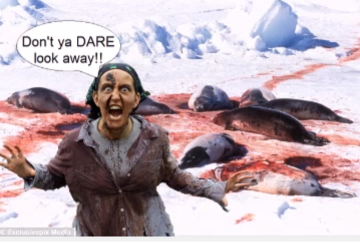 sweeping moratorium on fishing the species, instantly eliminating a traditional livelihood for about 30,000 people. There’s now a small commercial cod fishery, known as the “stewardship” fishery,,, The Fisheries Department declined a request for an interview to address criticism that it needs a greater focus on conservation. and a growing seal problem that is ignored in this communication,,, >click to read< 08:01
sweeping moratorium on fishing the species, instantly eliminating a traditional livelihood for about 30,000 people. There’s now a small commercial cod fishery, known as the “stewardship” fishery,,, The Fisheries Department declined a request for an interview to address criticism that it needs a greater focus on conservation. and a growing seal problem that is ignored in this communication,,, >click to read< 08:01
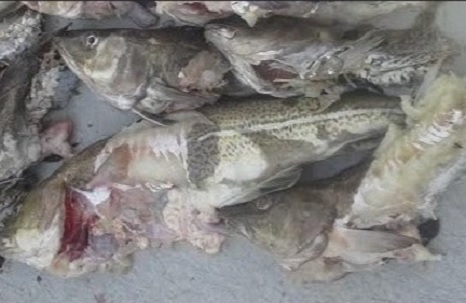
Changing environment may be to blame for reduced fish populations – Seals, Professor? Regulatory changes?
A new study aimed at determining how best to boost recovery of Atlantic cod has researchers pondering whether ongoing fishing and environmental changes, rather than evolution, are behind failed recovery of many stressed fish populations. (Seal predation?!!) Research published Monday, April 5 by Rutgers University, including genetic sequencing of this iconic species, offers major implications for ocean conservation, says Malin Pinsky, an associate professor in the School of Environmental and Biological Sciences at Rutgers University-New Brunswick. “Fish populations around the world have collapsed and many have not recovered,” said Pinsky. >click to read 09:43
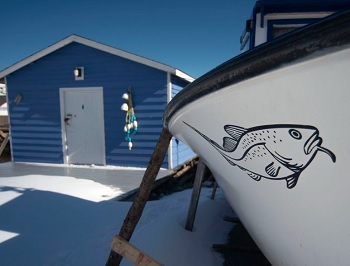
Nearly 30 years into the moratorium, Newfoundlanders look for ways to rebuild Cod
Atlantic cod, the species better known by its population name, Northern cod, is the fish of choice for Newfoundlanders and Labradorians. On a day spent handlining cod on the North Atlantic off of Petty Harbour-Maddox Cove, a centuries-old fishing community just outside of St. John’s, it can be easy to forget cod has a storied history – and a still uncertain future. Northern cod survived near-decimation from overfishing three decades ago, leading the federal department of Fisheries and Oceans Canada (DFO) to shutter the commercial cod fishery in 1992. Meant to last two years, the cod moratorium remains in effect, although DFO reopened an inshore commercial fishery, called the “stewardship fishery,” in 2006. >click to read< 11:00

New DFO regulations, 30 major commercial stocks have been identified for rebuilding
Canada is putting into law a requirement that it rebuild depleted commercial fish stocks, starting with 17 stocks that include Atlantic cod off Newfoundland, spring spawning herring in the Gulf of St. Lawrence and three Pacific salmon stocks. They account for more than half the 30 major commercial stocks identified for specific protection in amended Fisheries Act regulations published Jan. 2. >click to read< 11:33
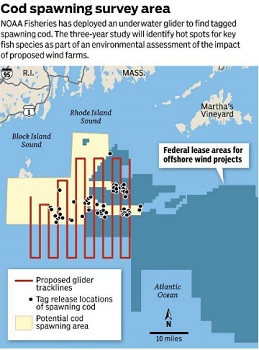
Federal study surveys spawning Atlantic Cod – Research area sits in waters zoned for offshore wind projects.
NOAA, the state Division of Marine Fisheries, Woods Hole Oceanographic Institution and the University of Massachusetts Dartmouth School of Marine Science and Technology are all participating in the study, which is funded by the U.S. Bureau of Ocean Energy Management. The research is focused on what may be one of the last remaining major seasonal spawning gatherings in the Northwest Atlantic, according to the state Division of Marine Fisheries. “It’s certainly been a persistent spawning aggregation and there are not many in New England,” said fisheries scientist Steve Cadrin, principal investigator on the project for the School of Marine Science and Technology. Atlantic cod populations are at historic lows, hammered by chronic overfishing and climate change. >click to read< 07:06
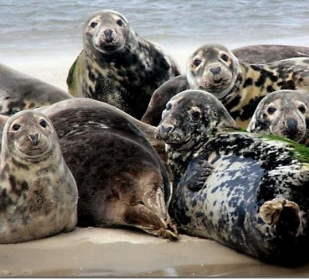
What lives, what dies? The role of science in the decision to cull seals to save cod
Atlantic cod on the Grand Banks of Newfoundland supported one of the world’s greatest fisheries for over three centuries. Yet this seemingly inexhaustible resource is in bad shape. Some stocks are now endangered and their survival could depend on removing a key predator, the grey seal. This raises some difficult questions: How do we determine the value of one species over another, and what is the role of science in this conundrum? My colleagues and I in the Fisheries Economics Research Unit at the University of British Columbia are fascinated by these questions. As an interdisciplinary group of economists, ecologists and social scientists, we commonly attribute values to animals in different ways. >click to read< 16:55
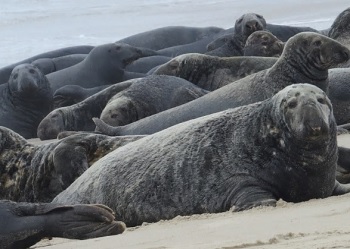
LETTER: Seals to blame
I would like to add my voice to those that disclaim the recent information provided by DFO’s (Department of Fisheries and Oceans) Dr. G. Stenson (In “The cull question: Part I”, published in the Jan. 16 edition of The Central Voice). Seals have destroyed our fisheries in Atlantic Canada and particularly that in Newfoundland and Labrador. The poor condition of harp seals in terms of age, previously measured body mass and survivability of pups, is a direct result of the seal population reaching a threshold capacity level. They are finding it more difficult to find fish (all species) to eat. Thus the recent influx in fresh water river systems — this is not their natural habitat and they are there to consume any fresh water species that might be available (salmon, trout, eels, etc.). We have had a cod moratorium for 26 years,,, Bob Hardy >click to read<
Canadian Perspective on Atlantic Cod Stocks & Management
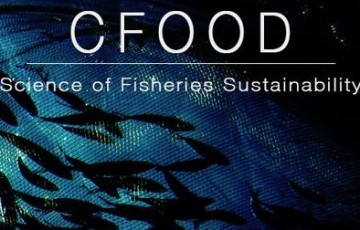 Last week we released a two part feature on the status of Atlantic cod stocks. Click here Part 1 was a general overview of the status of stocks while Part 2 dove deeper into the reasons behind different statuses.
Last week we released a two part feature on the status of Atlantic cod stocks. Click here Part 1 was a general overview of the status of stocks while Part 2 dove deeper into the reasons behind different statuses.
Jeffrey Hutchings, a fishery scientist at Dalhousie University was inspired to comment on our CFOOD feature below;
Despite voluminous research, science discussions of Atlantic cod can verge on the simplistic. Overfishing and ‘the environment’ unhelpfully portrayed as alternative or additive causes of decline. Temperature presented unequivocally as the driver of recruitment. Variable attention to how differential responses to natural and human-induced environmental stressors can be influenced by basic elements of demography — population size, age structure, natural mortality — especially when these fall outside a population’s norm. The collapse of Northern cod was unprecedented but the low temperatures that cod experienced prior to collapse were not (it has been as cold, or colder, if one’s temporal horizon extends beyond the mid 20th Century for this 500-year-old fishery). Recruitment failure is not affecting the recovery of some depleted stocks, such as Southern Gulf of St. Lawrence cod, but altered predator-prey interactions – predicated by prolonged overfishing – almost certainly are. Not all northeast Atlantic cod are doing well, as the current status of those along the Norwegian coast will attest. Read the rest here 14:07
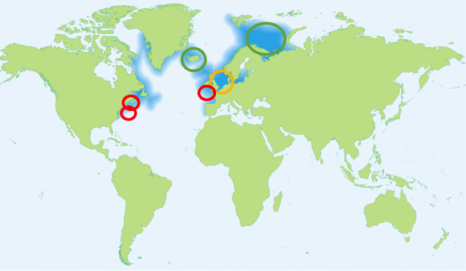
Atlantic Cod: The Good, The Bad, and the Rebuilding – Part 1 and 2
“Fishing pressures…or environmental pressures…are different from place to place even within what is considered to be a single management area, and that effect is multiplied when you consider going from one management area to another” says Coby Needle. This implies that there is no singular reason for the observed differences in stock status. However, there do seem to be general trends based on the latitudinal position of stocks. In general, the northern stocks are doing better than the southern populations. “In the NE Atlantic, the more northerly stocks like Barents Sea and Icelandic cod are generally in much better shape than the ones further south…There is some long-term environmental trend affecting their recovery” says Robin Cook. However, “it’s not as simple as it was 2 or 3 years ago when we probably thought it was all related to global change; the southern stocks were suffering while the northern stocks were benefitting from a warming Arctic” says Chris Zimmermann. One example is the disappearance of North Sea cod from the southern spawning grounds, where there has been no spawning activity for the last 10-15 years. “Newspapers say ‘there’s no spawning of cod in the North Sea at all.’ That’s not the case – it’s just the southern spawning grounds. That’s certainly related to global change” says Chris Zimmermann. “Distributions are further north because the more southern populations are less successful” Robin Cook agrees. Five Audio reports, Read the rest here 09:39 Read Part 1 here
Atlantic cod, white hake recommended for endangered species list
 The low number of white hake and Atlantic cod has led to the recommendation they be given endangered status by the Committee on the Status of Endangered Wildlife in Canada. Nearly half a million grey seals in the Northumberland Strait that feed on the fish are the main cause behind the recommendation, according to the committee. It’s also a combination of two other factors, said Hugues Benoit, head of the marines fish section at Fisheries and Oceans Canada. “The available information we have now it does suggest that the combined effect of the low level of abundance of these fish species and high level of abundance of grey seals could be the cause of elevated natural mortality,” he said. Read the rest here 17:03
The low number of white hake and Atlantic cod has led to the recommendation they be given endangered status by the Committee on the Status of Endangered Wildlife in Canada. Nearly half a million grey seals in the Northumberland Strait that feed on the fish are the main cause behind the recommendation, according to the committee. It’s also a combination of two other factors, said Hugues Benoit, head of the marines fish section at Fisheries and Oceans Canada. “The available information we have now it does suggest that the combined effect of the low level of abundance of these fish species and high level of abundance of grey seals could be the cause of elevated natural mortality,” he said. Read the rest here 17:03
Northeast Fisheries Science Center say’s key fishing area for Atlantic cod in dire shape
New data from the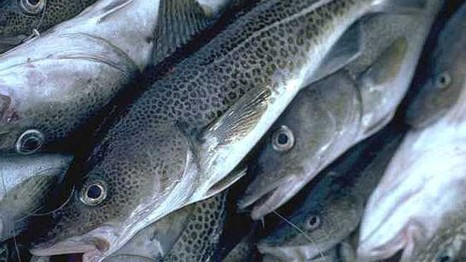 says research boats caught less of the fish this past spring than in all but one spring season dating back to 1968. A report from the centre, given to The Associated Press on Tuesday, states that the boats caught about 3.3 pounds of cod each time the net went in and out of the water last spring, compared to more than three times that amount two years earlier. “Is that coming as a surprise from anybody who knows what the water temperature is out there? No, it shouldn’t be,” said David Goethel, a New Hampshire-based fisherman. “These fish are declining because of climate change.” Read the rest here 22:13
says research boats caught less of the fish this past spring than in all but one spring season dating back to 1968. A report from the centre, given to The Associated Press on Tuesday, states that the boats caught about 3.3 pounds of cod each time the net went in and out of the water last spring, compared to more than three times that amount two years earlier. “Is that coming as a surprise from anybody who knows what the water temperature is out there? No, it shouldn’t be,” said David Goethel, a New Hampshire-based fisherman. “These fish are declining because of climate change.” Read the rest here 22:13
Atlantic cod could be at risk from noise created by wind farms and other off-shore developments
A study carried out by the University’s world-leading Institute of Aquaculture found that Atlantic cod exposed to noise levels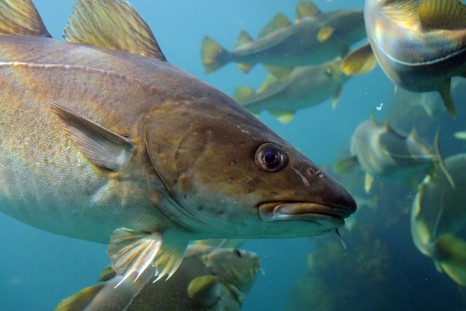 common in land-based aquaculture facilities exhibited significantly reduced rates of egg production and fertilization. But the researchers believe this could also have implications for Atlantic cod in the wild. Dr Andrew Davie, of the University’s world leading Institute of Aquaculture, said: “We need to be cautious as our study focused on the noise generated in enclosed,,, Read the rest here 13:36
common in land-based aquaculture facilities exhibited significantly reduced rates of egg production and fertilization. But the researchers believe this could also have implications for Atlantic cod in the wild. Dr Andrew Davie, of the University’s world leading Institute of Aquaculture, said: “We need to be cautious as our study focused on the noise generated in enclosed,,, Read the rest here 13:36
Tradex 3-Minute Market Insight: Bleak Outlook for Collapsed Sole Market; Cod Pricing Creates Buyer Opportunities
 Long inventories, poor markets, and limited cash flow equate to looming troubles ahead for Chinese processing plants. Atlantic Cod pricing remains strong and raw materials are still high, forcing upwards pricing pressure on finished goods headed for North America. is looking like an affordable whitefish alternative. Watch the 3-Minute Market Insight here 14:58
Long inventories, poor markets, and limited cash flow equate to looming troubles ahead for Chinese processing plants. Atlantic Cod pricing remains strong and raw materials are still high, forcing upwards pricing pressure on finished goods headed for North America. is looking like an affordable whitefish alternative. Watch the 3-Minute Market Insight here 14:58
Rebuilding cod in 3Ps – Stock swimming in right direction – How ’bout that!
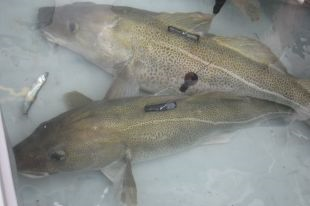 David Coffin, a research management official with the Department of Fisheries and Oceans (DFO) in Newfoundland, said the federal government has initiated a rebuilding plan for the southern Newfoundland Atlantic cod stock in fishing area 3Ps. Read the rest here 21:43
David Coffin, a research management official with the Department of Fisheries and Oceans (DFO) in Newfoundland, said the federal government has initiated a rebuilding plan for the southern Newfoundland Atlantic cod stock in fishing area 3Ps. Read the rest here 21:43
Changes in forage fish abundance alter Atlantic cod distribution, affect fishery success – What do you think?
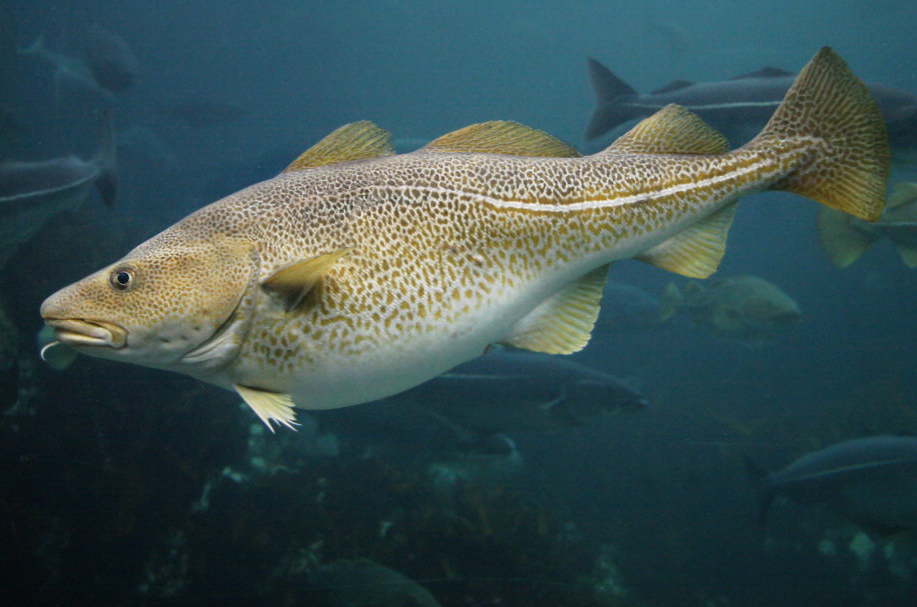 Writing in the Canadian Journal of Fisheries and Aquatic Sciences, researchers from NOAA Fisheries’ Northeast Fisheries Science Center (NEFSC) show how the fishermens’ observations and the assessment results could both be accurate. Read more here 17:41
Writing in the Canadian Journal of Fisheries and Aquatic Sciences, researchers from NOAA Fisheries’ Northeast Fisheries Science Center (NEFSC) show how the fishermens’ observations and the assessment results could both be accurate. Read more here 17:41
John Mandelman: Solving a Cod-undrum – I recommend this video. Well worth the time investment.
 Published on May 30, 2014 The Atlantic codhas not recovered from stock collapses in recent years, despite substantial management intervention and a major reduction in commercial fishing effort. . Dr. John Mandelman describes ongoing work by the New England Aquarium and colleagues to better understand the fate of undersized cod that by law must be released after capture in recreational fisheries, and which strategies may increase the probability of survival. Watch here 19:26
Published on May 30, 2014 The Atlantic codhas not recovered from stock collapses in recent years, despite substantial management intervention and a major reduction in commercial fishing effort. . Dr. John Mandelman describes ongoing work by the New England Aquarium and colleagues to better understand the fate of undersized cod that by law must be released after capture in recreational fisheries, and which strategies may increase the probability of survival. Watch here 19:26
Atlantic cod pushing out Arctic relatives?
When I visited the AWI Biological Institute on the German North Sea island of Helgoland last year for a story on how climate change is affecting marine life, the Institute’s Director Karen Wiltshire mentioned to me that cod was disappearing from the waters around the island. The Atlantic cod, it seems, are moving north, more@iceblog 20:03
Are you a big-picture person, or do you focus on the details? Two Takes on Climate Change in the Ocean
 A pair of recent studies show how marine ecosystems are changing as ocean temperatures rise, and that these changes are happening more quickly than expected. [email protected] 09:42
A pair of recent studies show how marine ecosystems are changing as ocean temperatures rise, and that these changes are happening more quickly than expected. [email protected] 09:42






